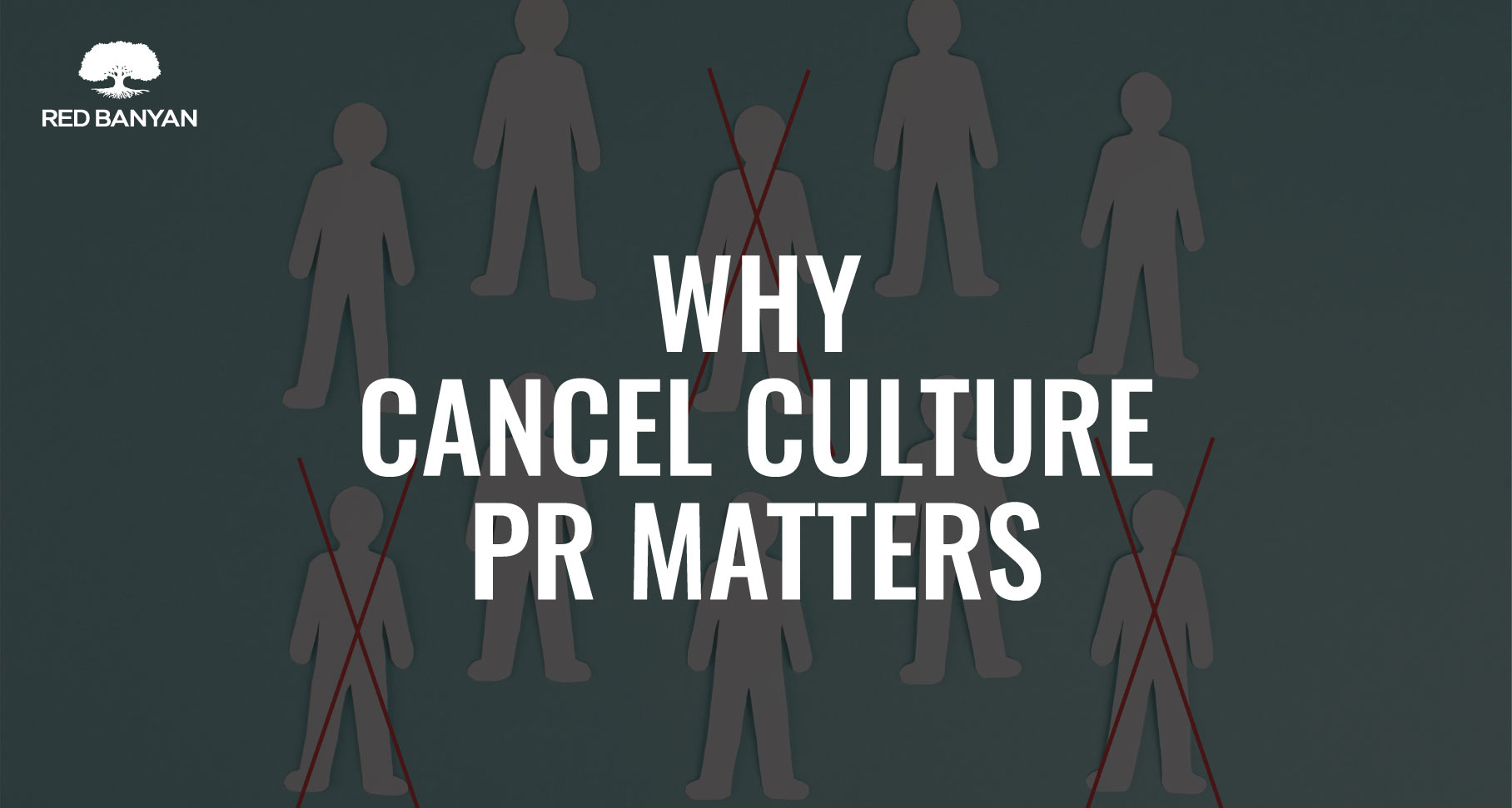Why Cancel Culture Public Relations Matters
September 5, 2023 | Category: Blog, Cancel Culture, Crisis PR, Public Relations

Faced with pressure from an online mob to issue an apology, what should you do? The truth be told, it is not a guaranteed fix and there are a lot of reasons why. Here are some key questions to consider when you are assessing the pros and cons of making a public apology
Identify the victim/wounded party
Who is demanding the apology? Who was harmed by your words or deeds? An apology should be offered to an actual victim; and that victim
must have the authority, or be able to assign someone else the authority, to offer forgiveness. Apologizing to an online mob whipped into a frenzy is
not likely to absolve you of whatever sin you are accused of having made. Apologizing to someone whom you have truly wronged is another thing altogether.
Determine the legitimacy of the claim
What are the reasons to believe the accuser or aggrieved was really harmed, either by your words or actions? Did you express yourself in an inaccurate or inartful manner? Would a reasonable person consider your expression truly hurtful? Apologies for mistakes or causing harm make sense, but not for simply expressing different or unpopular ideas or perspectives on a controversial topic.
Issue an apology from a position of strength
If an apology is warranted, and you can clearly identify the person or group from whom you would like forgiveness, then offer a sincere apology that positions you as someone with integrity. Key components to an effective apology often include:
- Acknowledging the wrong
- Taking responsibility for your words or deeds without blaming
others - Apologies and Atonement
- Forgoing pandering or groveling
- Asking for forgiveness
- Following through on any pledges you make
- Avoiding repetition of the same offense
Just remember, one of the worst forms of apologies that can be proffered is the type that can be considered “Sorry, Not Sorry.” Also problematic is an apology by someone justifying or excusing their behavior while at the same time seeking on the surface, to make amends for it. Refusing to accept responsibility for your words or actions can be problematic if you were at fault. An honest apology can work if the accused transgressor is genuine, sincere, and knows from whom precisely he or she must ask forgiveness, if anyone.
In the context of cancel culture, apologies are rebuffed, and a mob decrees the apologizer irredeemable. Even worse, cancel vultures neither seek atonement nor offer forgiveness. As a result, reluctant apologies do not resolve conflict and “hostage” apologies make things worse. Most importantly, follow through on any pledges you make and do not repeat the same mistake.
Before apologizing in the wake of a reputational attack, identify the aggrieved party, determine the legitimacy of their claim, and issue an apology from a position of strength. Remember, the honest apology is a potent and effective model for achieving salvation. When an apology is offered and forgiveness granted, both parties move forward.
Having a cancel culture crisis? Let Red Banyan’s team of cancel culture and crisis communications experts help. Contact Red Banyan’s crisis PR professionals and get your life back on track.

